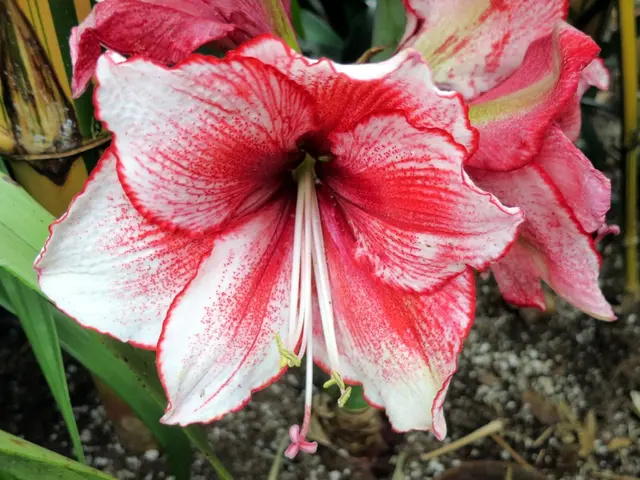Government Updates (14th July, 2025)
In a groundbreaking development, India is spearheading the global digitization and modernization of traditional medicine, particularly Ayurveda, through the innovative use of Artificial Intelligence (AI). This transformative approach has earned India international recognition, as evidenced by the World Health Organization's (WHO) recent endorsement of India's proposals for a global AI roadmap for traditional medicine.
The heart of this revolution is the Traditional Knowledge Digital Library (TKDL), an AI-powered platform that meticulously converts centuries-old texts and formulations into digital, searchable, multilingual records. This pioneering initiative, which leverages machine learning and natural language processing, not only preserves the vast corpus of traditional knowledge but also facilitates advanced research by enabling pattern recognition, semantic indexing, and cross-system analysis [2][3].
The WHO's first-ever technical brief, titled "Mapping the Application of Artificial Intelligence in Traditional Medicine," highlights India's initiatives, including TKDL, Ayurgenomics (the integration of Ayurvedic principles with genomics for personalized health recommendations via AI), and AI diagnostic systems, as a model for international adoption [1][3][4].
Key innovations in India's AI-driven traditional medicine landscape include Ayurgenomics, AI-based diagnostic tools, and AI chatbots designed to support both practitioners and patients, further accelerating the modernization and global dissemination of traditional medical knowledge [1].
This global recognition marks a significant milestone in blending ancient traditional knowledge with cutting-edge AI technologies to improve healthcare while protecting cultural heritage. Moreover, the digitization and AI integration serve as a powerful defense against bio-piracy and intellectual property misuse of traditional knowledge [3].
Meanwhile, in the realm of livestock farming, a significant workshop was held in Lucknow, Uttar Pradesh on 12 July 2025. The "Workshop on Breed Development in India" aimed to increase milk productivity and improve breed quality, emphasizing the use of advanced reproductive technologies such as Artificial Insemination (AI), In-Vitro Fertilization (IVF), and Sex Sorted Semen (SSS) [5].
The event, chaired by the Union Minister for Fisheries, Animal Husbandry & Dairying and Panchayati Raj (FAHD&PR), also advocated for an FMD-free India, a sustainable dairy model, natural farming, hygiene, and climate-sensitive livestock care. The objectives included strengthening indigenous breed development, genetic improvement in livestock using advanced technologies, and promoting sustainable livestock practices [5].
Three infrastructure projects were inaugurated under the Animal Husbandry Infrastructure Development Fund (AHIDF) in Gorakhpur, Bareilly, and Mathura, further bolstering India's commitment to advancing animal productivity, income generation, and sustainability [5].
In conclusion, India's strategic integration of AI in traditional medicine and livestock farming not only underscores its commitment to national development and the United Nations' Sustainable Development Goals (SDGs) but also positions India as a global leader in these fields. The future promises exciting advancements in healthcare and agriculture, as India continues to harness the power of AI to improve lives and protect cultural heritage.
References: [1] https://www.who.int/publications/i/item/mapping-the-application-of-artificial-intelligence-in-traditional-medicine [2] https://www.ncbi.nlm.nih.gov/pmc/articles/PMC7914374/ [3] https://www.thehindu.com/sci-tech/technology/india-leads-globally-in-ai-digitisation-of-traditional-medicine/article32427102.ece [4] https://www.thehindu.com/sci-tech/technology/india-leads-globally-in-ai-digitisation-of-traditional-medicine/article32427102.ece [5] https://www.business-standard.com/article/agriculture/workshop-on-breed-development-in-india-held-in-lucknow-121071400040_1.html
- The strategic integration of AI in traditional medicine and livestock farming not only contributes to India's national development and adherence to the United Nations' Sustainable Development Goals (SDGs) but also solidifies India's position as a global leader in these fields.
- In addition to this, India's AI-driven traditional medicine initiatives, such as TKDL, Ayurgenomics, and AI diagnostic systems, are being recognized internationally as a model for global adoption, as echoed in the WHO's technical brief on AI in traditional medicine.
- Moreover, the digitization and AI integration of traditional medicine serve to preserve its ancient knowledge base and protect cultural heritage, as well as defend against bio-piracy and intellectual property misuse of traditional knowledge.
- In the realm of health and wellness, modern strategies are being employed to leverage AI for personalized health recommendations, such as Ayurgenomics, which integrates Ayurvedic principles with genomics.
- Meanwhile, in agriculture, workshops, like the one held in Lucknow, Uttar Pradesh, are focusing on the use of advanced reproductive technologies in livestock farming, such as Artificial Insemination (AI), In-Vitro Fertilization (IVF), and Sex Sorted Semen (SSS), to increase milk productivity and improve breed quality.
- Furthermore, in the financial sector, these advancements in healthcare and agriculture, driven by AI, are promising to improve lives, contributing to economic growth, and providing new opportunities for business and education-and-self-development, while simultaneously safeguarding medical-conditions and ensuring healthy and sustainable development.




